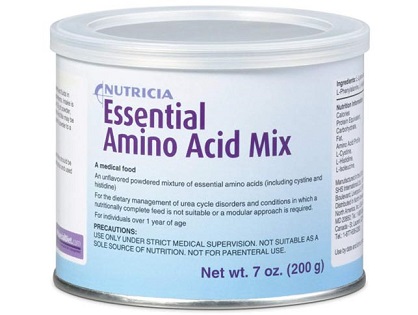Nikhil Prasad Fact checked by:Thailand Medical News Team Jul 20, 2024 8 months, 3 weeks, 1 day, 13 hours, 30 minutes ago
Cancer Updates: Colon cancer is one of the leading causes of cancer-related deaths worldwide. New research from a team of scientists at the University of Brescia, Italy, and Holy Cross Medical Center, USA, sheds light on a potential dietary intervention that could significantly slow the growth of colon cancer tumors. This
Cancer Updates news report delves into the fascinating findings of their study.
 Mixture of essential amino acids could possibly slow colon cancer progression
Study Overview
Mixture of essential amino acids could possibly slow colon cancer progression
Study Overview
The research team, including Dr Giovanni Corsetti, Dr Claudia Romano, Dr Silvia Codenotti, Dr Lorena Giugno, Dr Alessandro Fanzani, Dr Tiziano Scarabelli, and Dr Francesco S. Dioguardi, investigated the effects of a special mixture of essential amino acids (EAA) on colon cancer growth in mice. They conducted both in vitro (in the lab) and in vivo (in live mice) experiments to determine whether this EAA mix could reduce cancer cell proliferation and induce cancer cell death.
Key Findings: Laboratory Experiments
In their laboratory experiments, the researchers treated CT26 colon carcinoma cells with the EAA mix. They observed a significant reduction in cancer cell viability, with a 60% decrease in cell survival after 72 hours of treatment. This drastic reduction was attributed to increased apoptosis (programmed cell death) and autophagy (the process by which cells degrade and recycle components).
Key Findings: Animal Experiments
The study's in vivo experiments involved feeding two groups of mice different diets. One group received a standard diet (StD), while the other group was fed an EAA-rich diet (EAARD). Both groups were then injected with CT26 colon carcinoma cells. The results were striking:
-Tumor Size and Weight: Mice on the standard diet developed tumors that were over six times larger and heavier than those in the EAA-rich diet group. The volume and weight differences were statistically significant.
-Survival Rates: The survival rate was notably higher in the EAA-rich diet group. Only four mice in the standard diet group survived the full 21-day observation period, whereas nine mice in the EAA-rich diet group reached the endpoint.
-Body Weight and Muscle Mass: Mice on the EAA-rich diet experienced less body weight loss and maintained muscle mass better than those on the standard diet.
Detailed Mechanisms: How EAA Mix Works
The researchers provided detailed insights into how the EAA mix works to inhibit tumor growth:
-Apoptosis and Autophagy: The EAA mix significantly increased the levels of apoptosis and autophagy in cancer cells. Apoptosis is a crucial mechanism for eliminating cancer cells, while autophagy helps maintain cellular health by degrading damaged cellular components.
gt;-Reduced Vascularization: Tumors in the EAA-rich diet group exhibited reduced vascularization, meaning fewer blood vessels were supplying nutrients to the tumor. This limited the tumor's ability to grow and spread.
-ER Stress and GRP78: The study observed increased expression of GRP78, a protein associated with endoplasmic reticulum (ER) stress, in tumors from the EAA-rich diet group. ER stress can lead to cell death when the stress is severe, further contributing to the reduction in tumor growth.
Histopathological Findings
Histopathological examinations revealed significant differences between the two diet groups:
-Cell Structure: Tumors from the EAA-rich diet group showed more apoptotic cell debris and less mitotic activity compared to those from the standard diet group.
-Collagen Synthesis: The presence of newly formed collagen, which can fuel tumor growth, was significantly lower in tumors from the EAA-rich diet group.
Composition of EAA Mix Used In Study:
L-Leucine (BCAA): 13.53%
L-Isoleucine (BCAA): 9.65%
L-Valine (BCAA): 9.65%
L-Lysine: 11.6%
L-Threonine: 8.7%
L-Histidine: 11.6%
L-Phenylalanine: 7.73%
L-Methionine: 4.35%
L-Tyrosine: 5.80%
L-Tryptophan: 3.38%
L-Cystine/Cysteine: 8.20%
L-Serine: 2.42%
Ornithine-αKG: 2.42%
N-acetylcysteine: 0.97%
This mix was used to investigate the impact of altering essential and non-essential amino acid ratios on the growth and development of colon cancer in mice. The EAA-mix was found to have significant antiproliferative properties, reducing tumor growth and enhancing cancer cell death.
Conclusion
This groundbreaking study highlights the potential of an essential amino acid-rich diet in slowing down the growth of colon cancer tumors. The detailed findings demonstrate that the EAA mix promotes cancer cell death, reduces tumor vascularization, and induces ER stress, creating an unfavorable environment for tumor growth.
The study findings were published in the peer-reviewed journal: Cells.
https://www.mdpi.com/2073-4409/13/14/1210
For the latest Cancer Updates, keep logging into Thailand Medical News.
Read Also:
https://www.thailandmedical.news/news/common-oral-bacteria-linked-to-colon-cancer
https://www.thailandmedical.news/news/breaking-news-study-alarmingly-finds-that-sars-cov-2-s-and-n-proteins-drive-invasion-abilities-of-colon-cancer-cells,-resulting-in-rapid-metastasis
